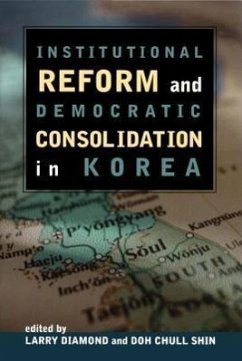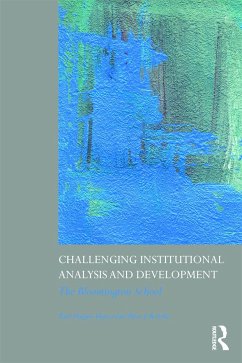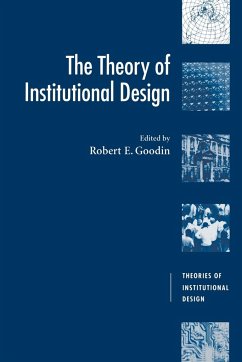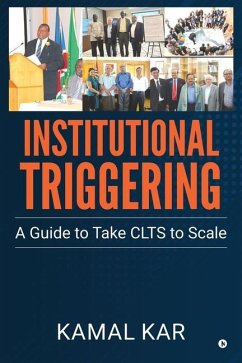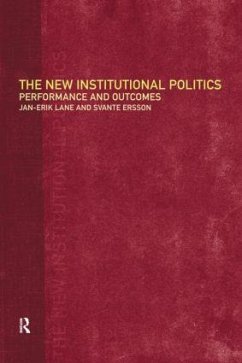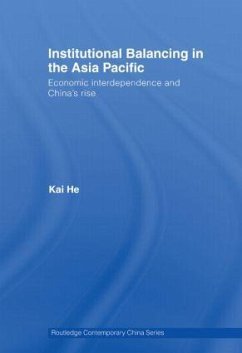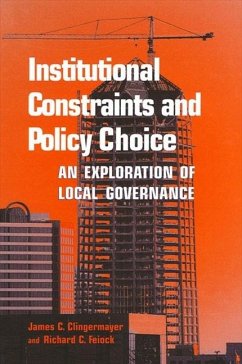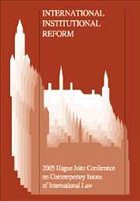
International Institutional Reform
Proceedings of the Seventh Hague Joint Conference Held in the Hague, the Netherlands, 30 June - 2 July 2005
Herausgeber: Fijalkowski, Agata
Versandkostenfrei!
Versandfertig in über 4 Wochen
86,99 €
inkl. MwSt.

PAYBACK Punkte
43 °P sammeln!
International Institutional Reform provides an overview of the 7th Hague Joint Conference in 2005.The 7th Hague Joint Conference in 2005 considered the main challenges that international law faces concerning the reform of institutions that carry great authority, and reflect long-standing tradition and far-reaching effect. International Institutional Reform provides an overview of the main subjects that the conference panels dealt with, such as whether certain international organizations lend themselves to reform; the role of the Security Council; the European Union and institutional reform; an...
International Institutional Reform provides an overview of the 7th Hague Joint Conference in 2005.
The 7th Hague Joint Conference in 2005 considered the main challenges that international law faces concerning the reform of institutions that carry great authority, and reflect long-standing tradition and far-reaching effect. International Institutional Reform provides an overview of the main subjects that the conference panels dealt with, such as whether certain international organizations lend themselves to reform; the role of the Security Council; the European Union and institutional reform; and the inter-play between national, regional and international courts. The book presents a valuable overview of the wide range of topical subjects covered by leading scholars in the field. Further, the reader is challenged with innovative and insightful suggestions concerning reforms. The energy, enthusiasm and passion that were evident at the conference discussions are documented here, as well as demonstrating the creativity and innovation among international law scholars and practitioners.
Table of contents:
1. Reformability: why (and how) are some international organizations able to reform themselves and others not?; 2. Has the time come for a permanent war damage compensation commission; 3. The expanding powers of the Security Council; 4. The role of international institutions in territorial administration and post-conflict justice; 5. The United States and international organizations; 6. Institutional reform and the European Union; 7. UN Reform: what follow-up to the high level panel report and the recommendations by the Secretary-General?; 8. The interplay between national, eegional and international courts: fragmentation or figmentation?; 9. Institutional challenges facing regional human rights courts; 10. Specialized and niche international institutions: apecial issues of reform; 11. ICSID and other investment arbitration tribunals: is there a need for judicial oversight or other reforms?; 12. Alternative paths to international institutional reform; 13. Plenary lunch session - The Hague as leading host of international organizations; 14. Final session - conclusions and recommendations.
The 7th Hague Joint Conference in 2005 considered the main challenges that international law faces concerning the reform of institutions that carry great authority, and reflect long-standing tradition and far-reaching effect. International Institutional Reform provides an overview of the main subjects that the conference panels dealt with, such as whether certain international organizations lend themselves to reform; the role of the Security Council; the European Union and institutional reform; and the inter-play between national, regional and international courts. The book presents a valuable overview of the wide range of topical subjects covered by leading scholars in the field. Further, the reader is challenged with innovative and insightful suggestions concerning reforms. The energy, enthusiasm and passion that were evident at the conference discussions are documented here, as well as demonstrating the creativity and innovation among international law scholars and practitioners.
Table of contents:
1. Reformability: why (and how) are some international organizations able to reform themselves and others not?; 2. Has the time come for a permanent war damage compensation commission; 3. The expanding powers of the Security Council; 4. The role of international institutions in territorial administration and post-conflict justice; 5. The United States and international organizations; 6. Institutional reform and the European Union; 7. UN Reform: what follow-up to the high level panel report and the recommendations by the Secretary-General?; 8. The interplay between national, eegional and international courts: fragmentation or figmentation?; 9. Institutional challenges facing regional human rights courts; 10. Specialized and niche international institutions: apecial issues of reform; 11. ICSID and other investment arbitration tribunals: is there a need for judicial oversight or other reforms?; 12. Alternative paths to international institutional reform; 13. Plenary lunch session - The Hague as leading host of international organizations; 14. Final session - conclusions and recommendations.



